第218章
And where formerly it had taken many stiff doses of liquor to get her into the state of recklessness or of indifference, she was now able to put herself into the mood in which life was endurable with two or three drinks, often with only one.The most marked change was that never by any chance did she become gay; the sky over her life was steadily gray--gray or black, to gray again--never lighter.
How far she had fallen! But swift descent or gradual, she had adapted herself--had, in fact, learned by much experience of disaster to mitigate the calamities, to have something to keep a certain deep-lying self of selfs intact--unaffected by what she had been forced to undergo.It seemed to her that if she could get the chance--or could cure herself of the blindness which was always preventing her from seeing and seizing the chance that doubtless offered again and again--she could shed the surface her mode of life had formed over her and would find underneath a new real surface, stronger, sightly, better able to bear--like the skin that forms beneath the healing wound.
In these tenements, as in all tenements of all degrees, she and the others of her class were fiercely resented by the heads of families where there was any hope left to impel a striving upward.She had the best furnished room in the tenement.She was the best dressed woman--a marked and instantly recognizable figure because of her neat and finer clothes.Her profession kept alive and active the instincts for care of the person that either did not exist or were momentary and feeble in the respectable women.The slovenliness, the scurrilousness of even the wives and daughters of the well-to-do and the rich of that region would not have been tolerated in any but the lowest strata of her profession, hardly even in those sought by men of the laboring class.Also, the deep horror of disease, which her intelligence never for an instant permitted to relax its hold, made her particular and careful when in other circumstances drink might have reduced her to squalor.She spent all her leisure time--for she no longer read--in the care of her person.
She was watched with frightened, yet longing and curious, eyes by all the girls who were at work.The mothers hated her; many of them spat upon the ground after she had passed.It was a heart-breaking struggle, that of these mothers to save their daughters, not from prostitution, not from living with men outside marriage, not from moral danger, but from the practical danger, the danger of bringing into the world children with no father to help feed and clothe them.In the opinion of these people--an opinion often frankly expressed, rarely concealed with any but the thinnest hypocrisy--the life of prostitution was not so bad.Did the life of virtue offer any attractive alternative? Whether a woman was "bad" or "good," she must live in travail and die in squalor to be buried in or near the Potter's Field.But if the girl still living at home were not "good," that would mean a baby to be taken care of, would mean the girl herself not a contributor to the family support but a double burden.And if she went into prostitution, would her family get the benefit? No.
The mothers made little effort to save their sons; they concentrated on the daughters.It was pitiful to see how in their ignorance they were unaware of the strongest forces working against them.The talk of all this motley humanity--of "good" no less than "bad" women, of steady workingmen, of political heelers, thieves and bums and runners for dives--was frankly, often hideously, obscene.The jammed together way of living made modesty impossible, or scantest decency--made the pictures of it among the aspiring few, usually for the benefit of religion or charitable visitors, a pitiful, grotesque hypocrisy.Indeed, the prostitute class was the highest in this respect.The streetwalkers, those who prospered, had better masters, learned something about the pleasures and charms of privacy, also had more leisure in which to think, in however crude a way, about the refinements of life, and more money with which to practice those refinements.The boys from the earliest age were on terms of licentious freedom with the girls.The favorite children's games, often played in the open street with the elders looking on and laughing, were sex games.
The very babies used foul language--that is, used the language they learned both at home and in the street.It was primitive man; Susan was at the foundation of the world.
To speak of the conditions there as a product of civilization is to show ignorance of the history of our race, is to fancy that we are civilized today, when in fact we are--historically--in a turbulent and painful period of transition from a better yesterday toward a tomorrow in which life will be worth living as it never has been before in all the ages of duration.In this today of movement toward civilization which began with the discovery of iron and will end when we shall have discovered how to use for the benefit of all the main forces of nature--in this today of agitation incident to journeying, we are in some respects better off, in other respects worse off, than the race was ten or fifteen thousand years ago.We have lost much of the freedom that was ours before the rise of governments and ruling classes; we have gained much--not so much as the ignorant and the unthinking and the uneducated imagine, but still much.In the end we which means the masses of us--will gain infinitely.But gain or loss has not been in so-called morality.There is not a virtue that has not existed from time ages before record.Not a vice which is shallowly called "effete" or the "product of overcivilization," but originated before man was man.